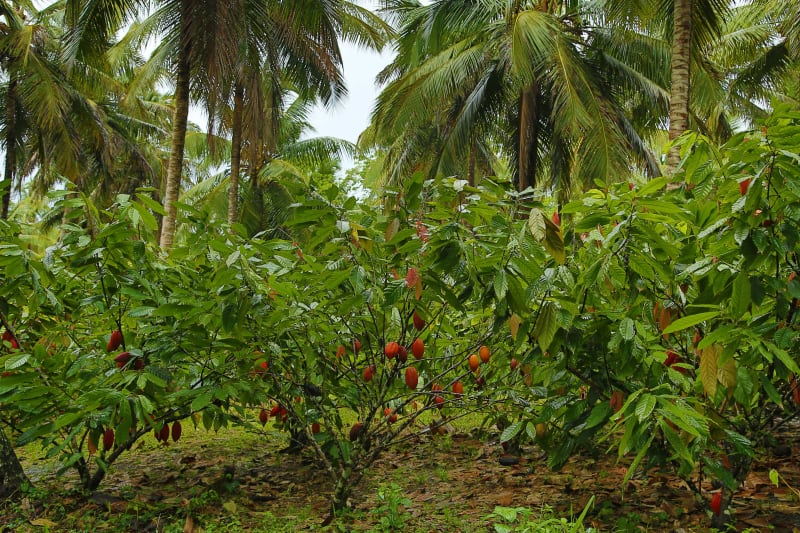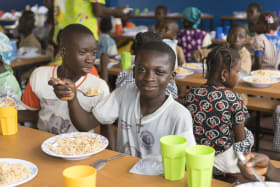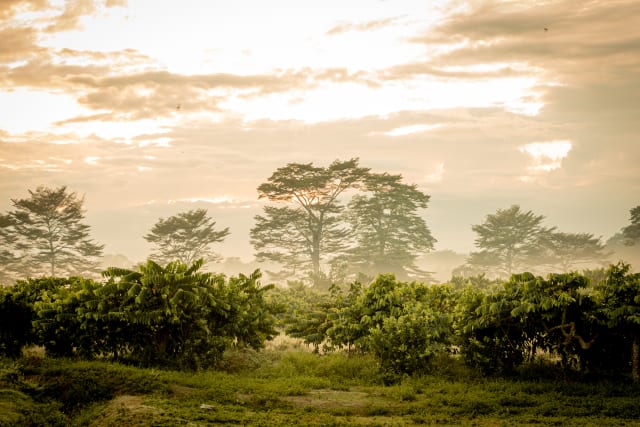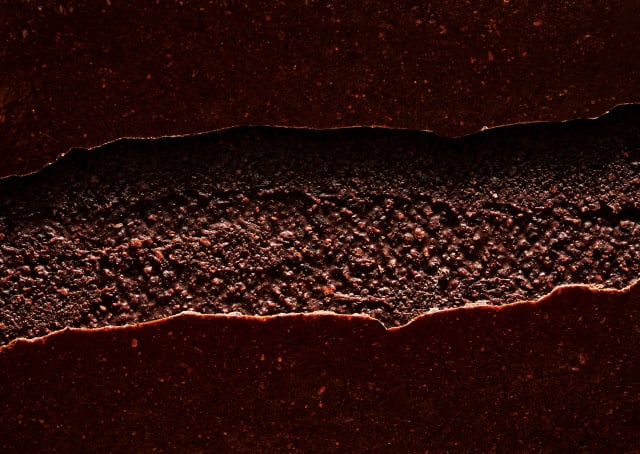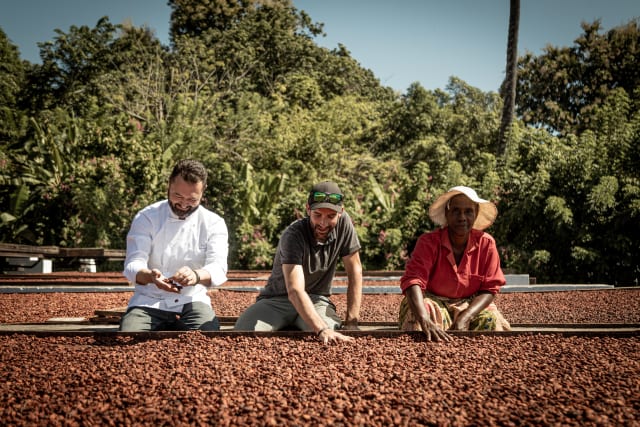You are using an outdated browser. Please upgrade your browser to improve your experience and security.

Cocoa
Creating a fair and sustainable cocoa sector
Valrhona is keeping up its commitment to supporting cocoa suppliers
Valrhona has always placed great importance on both the quality and flavor of its chocolate and its commitment to creating a fair and sustainable cocoa industry that takes care of people and the planet.
Valrhona has been a pioneer in this regard, creating an expert team of sourcers who are dedicated solely to its cocoa supplies and developing direct, long-term relationships with producer organizations. Because we work so closely with our suppliers around the world, Valrhona has been able to strengthen its cocoa expertise by developing terroirs, varieties and different cultivation techniques.
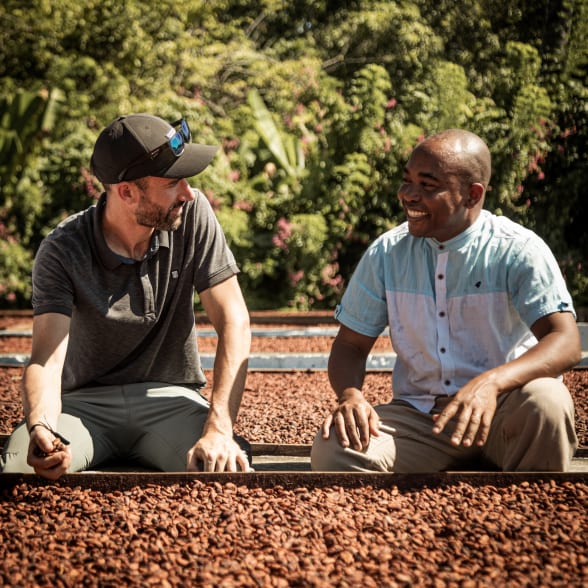
Our Sustainable Cocoa Policies
For many years now, Valrhona has been fostering and implementing numerous projects to make its cocoa supplies more sustainable and resilient :
- 100% of our cocoa comes from long-term partnership contracts with cooperatives or plantations, each one averaging over 8 years in length.
- We visit and audit each of our cocoa suppliers, at least once a year (when the geopolitical context allows it).
- We are committed to not operating any agricultural plots within protected areas. Since 2018, 100% of the cocoa beans sourced by Valrhona can be traced back to the producer. What’s more, since 2019, we have been mapping our producers’ agricultural plots (with the aim of mapping 100% of these by the end of 2024). By overlaying all our partner growers' plots onto each country’s official map, we can
- We are committed to reducing the carbon footprint of our cocoa. To do this, we have decided to go one step further than the EU’s Deforestation Regulation (EUDR) via GPS polygon mapping of 100% of our plots for maximum precision, no matter their size. In partnership with the NGO Nitidae, we have launched a cocoa carbon footprint calculator specifically for the cocoa-producing regions from which we source our beans. While the EUDR requires us to prove that our cocoa has not been grown on deforested land after 31 December 2020, we have also chosen to perform a qualitative and quantitative risk assessment of deforestation over a 20-year period. This approach helps us to precisely understand our cocoa emission factors, so we can target our impact more effectively.
Our level of commitment was confirmed when we were awarded the B Corp label for a second time.
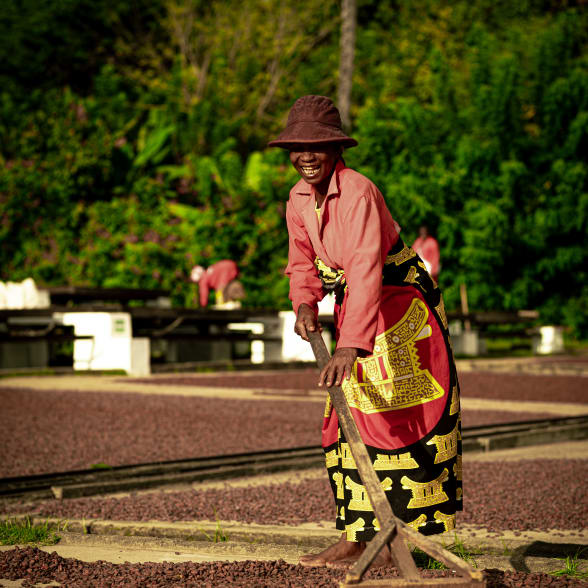
Our experts testify
Through the portraits of our cocoa sourcers, experts and partners, discover some of the projects carried out in our chocolate factory or on plantations with our producer communities.
Looking ahead to 2030
Valrhona is continuing and strengthening its actions for a fair and sustainable cocoa industry. In practice, this means increased action on key cocoa supply chain issues such as:
- Paying producers fair and equitable prices through the purchase of Fair Trade certified cocoa raw materials
- Combating forced labor and child labor through the deployment of CLMRS
- Combating deforestation with the goal of zero plots in protected areas
- Reducing greenhouse gas emissions with a target of -50% emissions by 2030
- The funding of research projects in agroecology
Valrhona is driven by the desire to do things better while refusing easy options, so it involves all its employees and stakeholders in implementing its action plans.
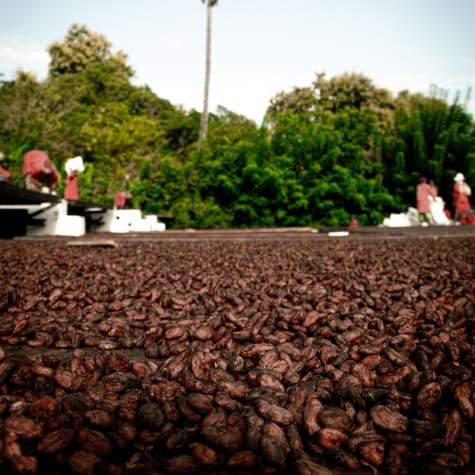
News
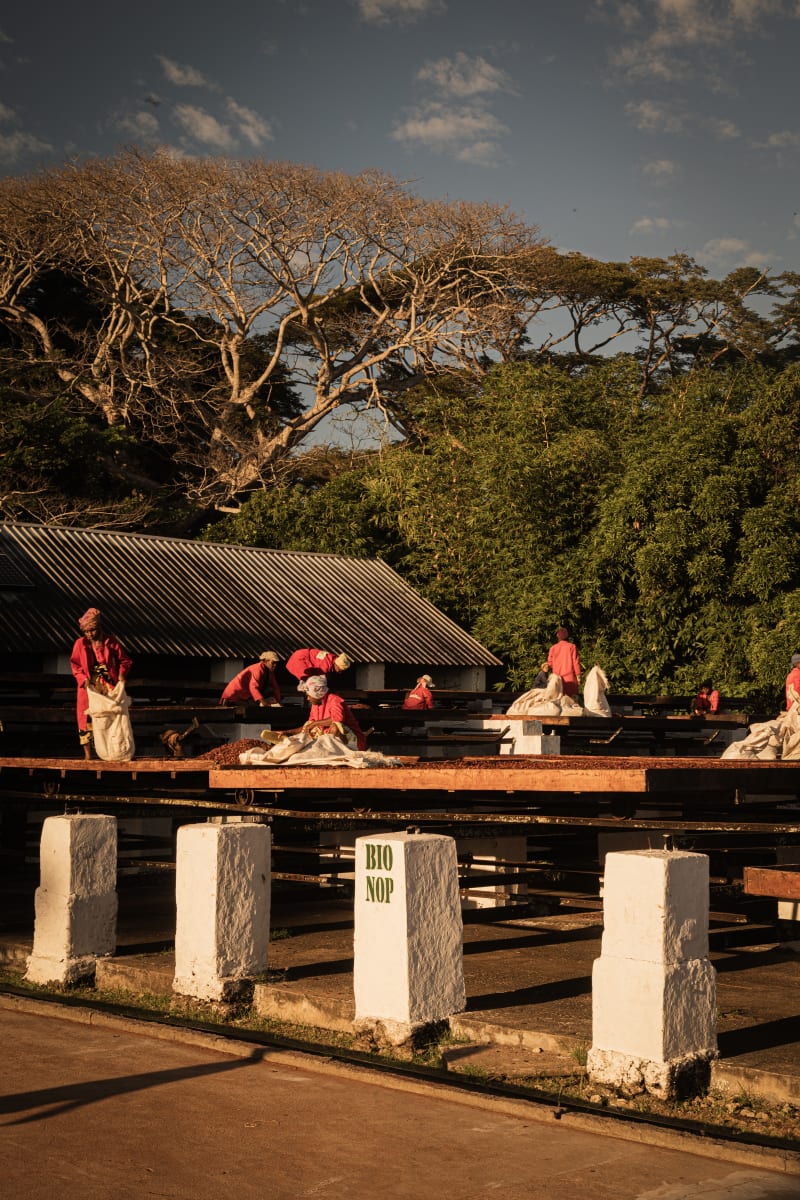
Komuntu 80%: €234,317 raised thanks to you!
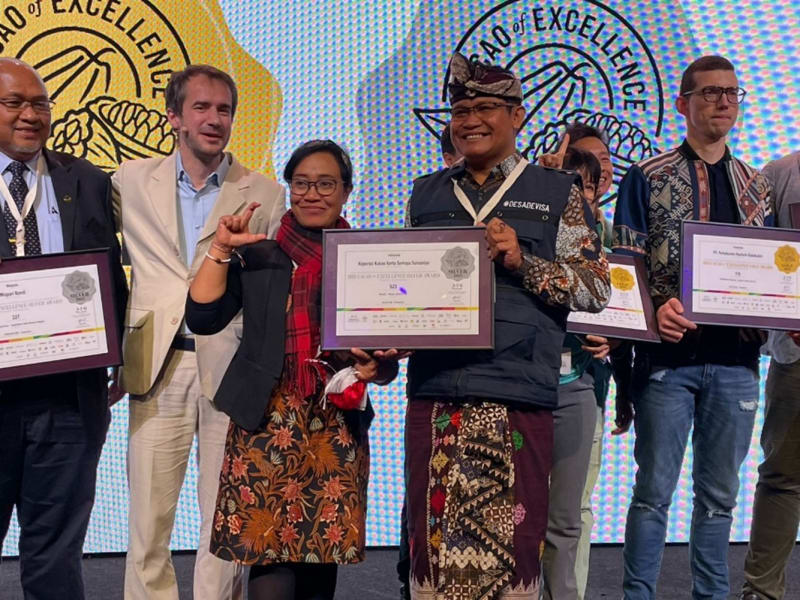
Cacao d'Excellence 2023: Kerta Semaya Samaniya, a Balinese cooperative and Valrhona partner, wins the Silver Award
